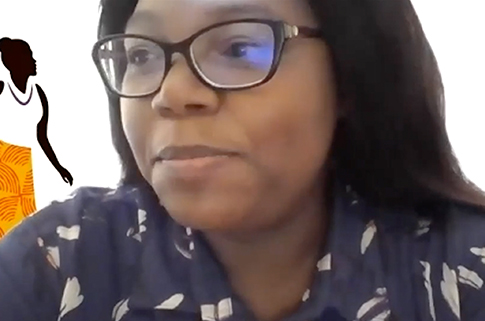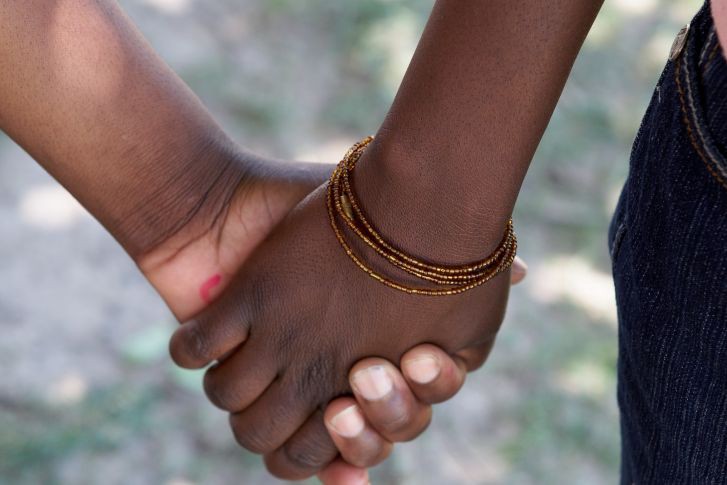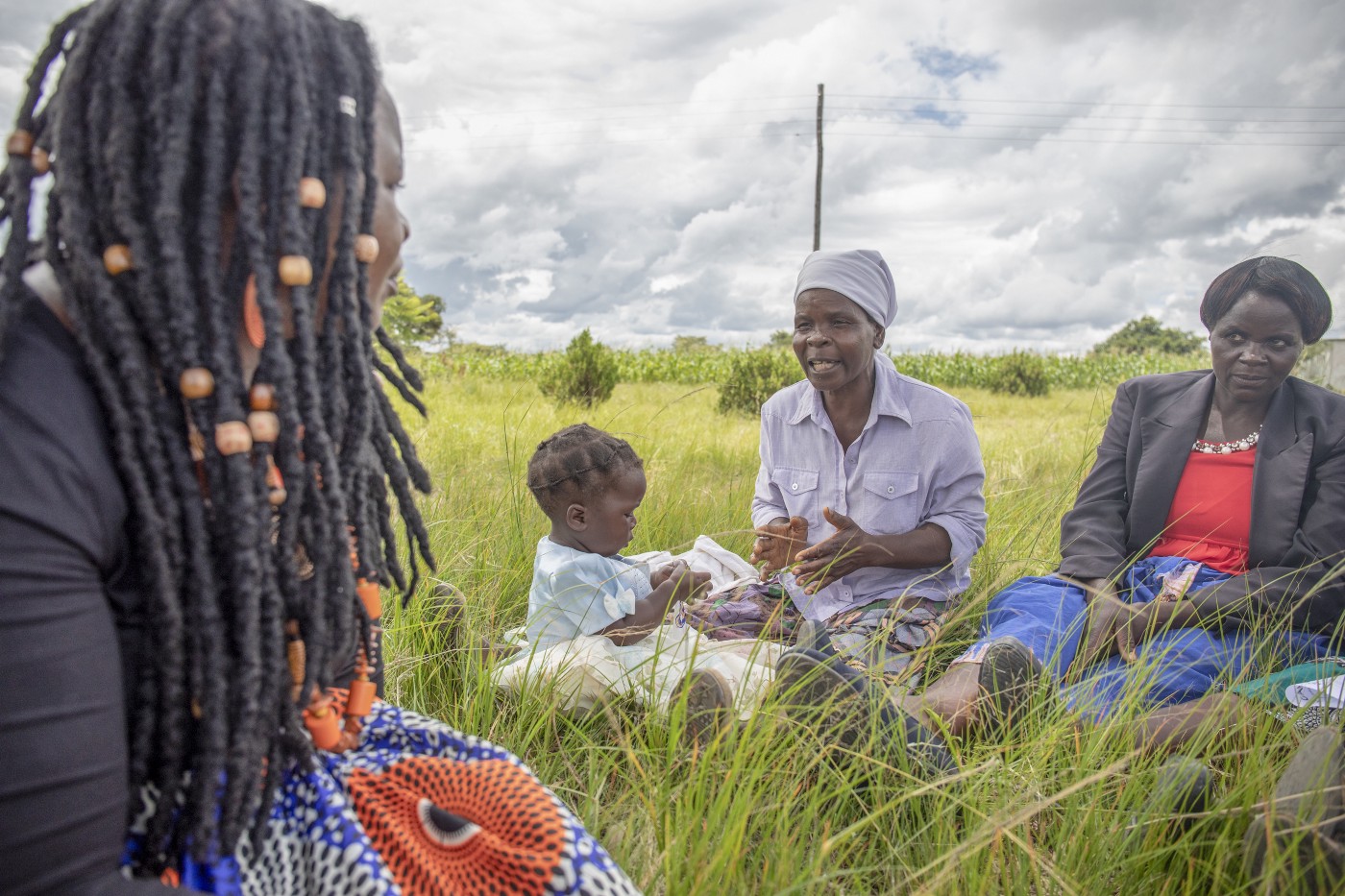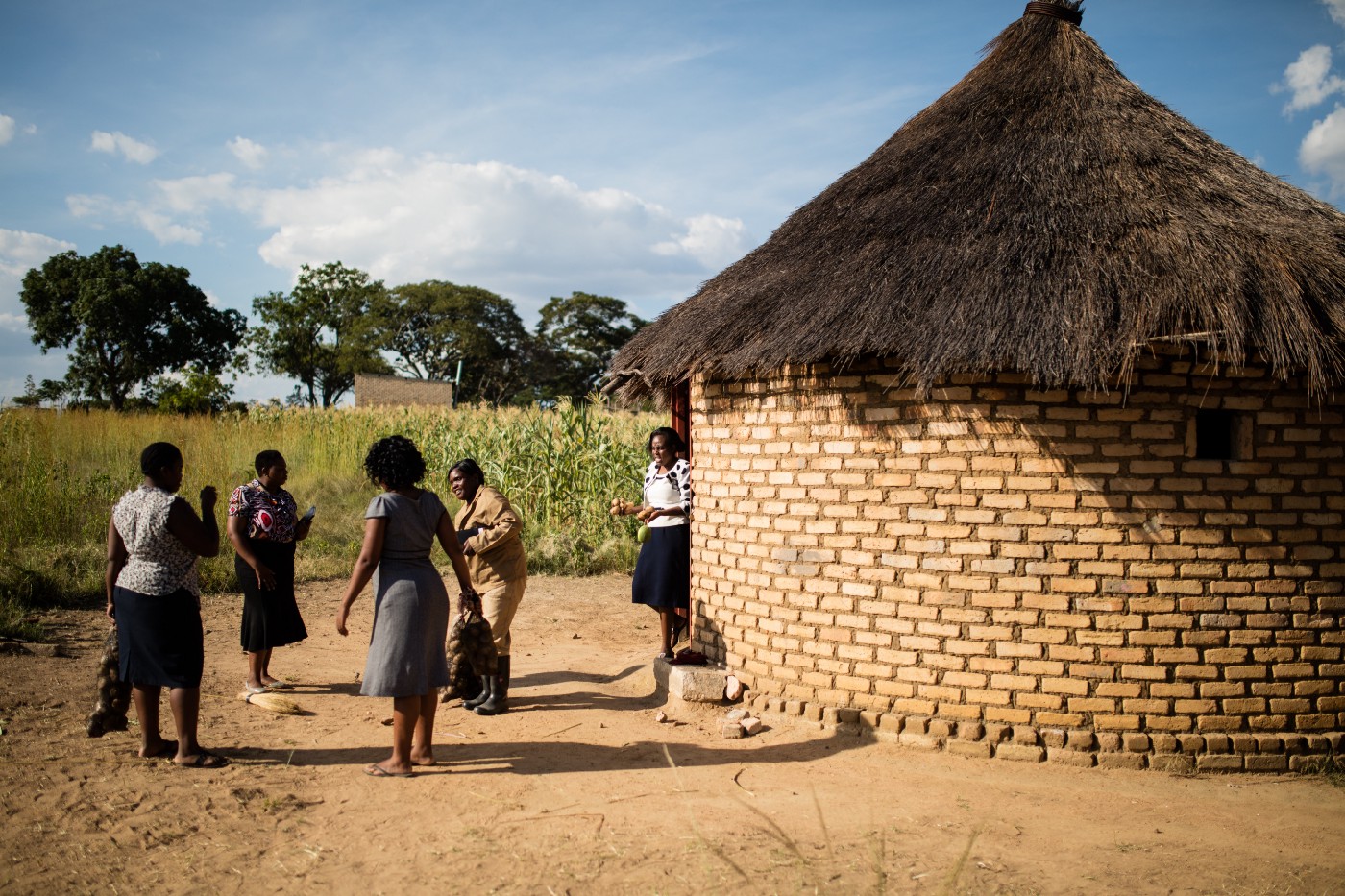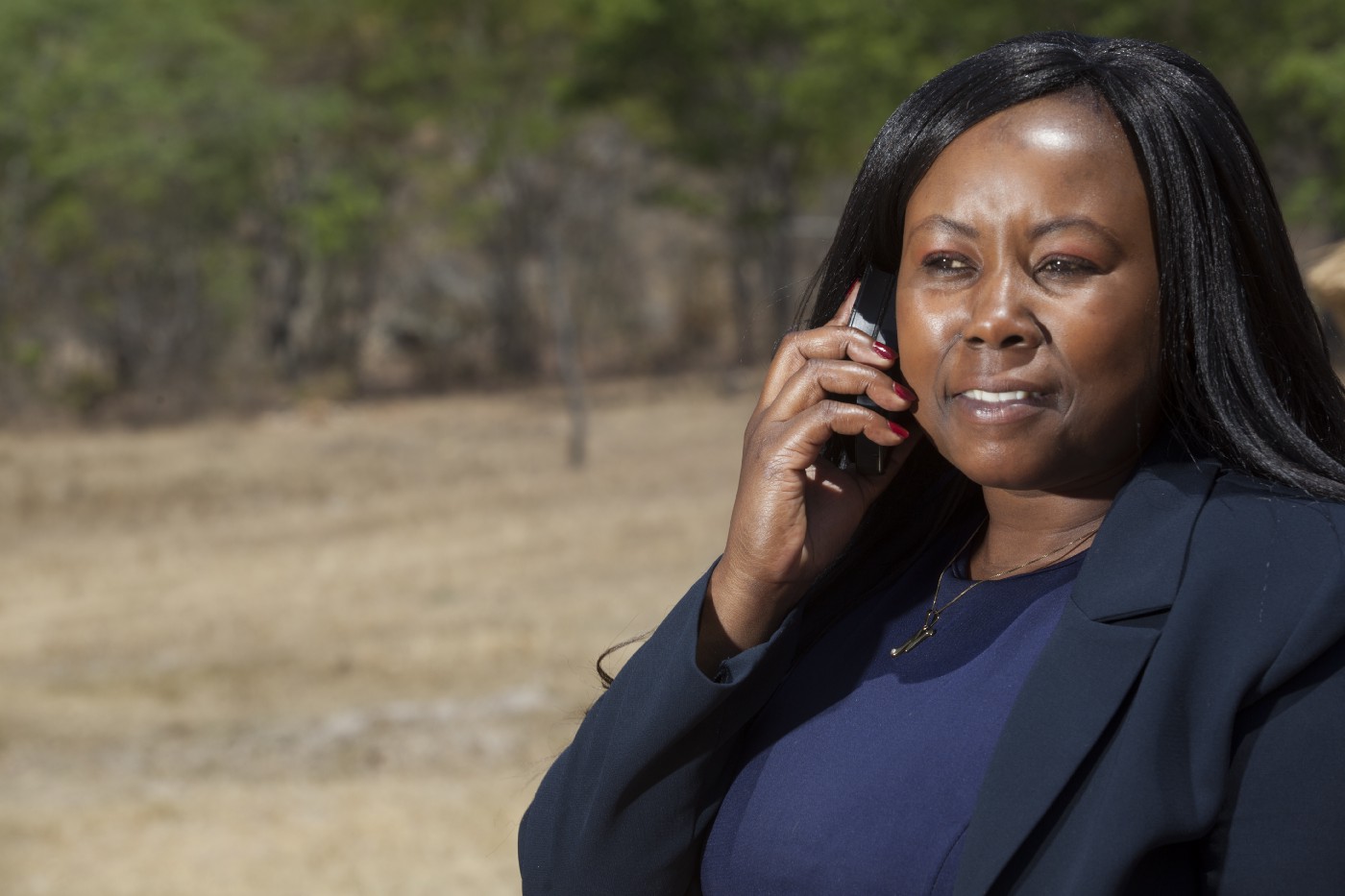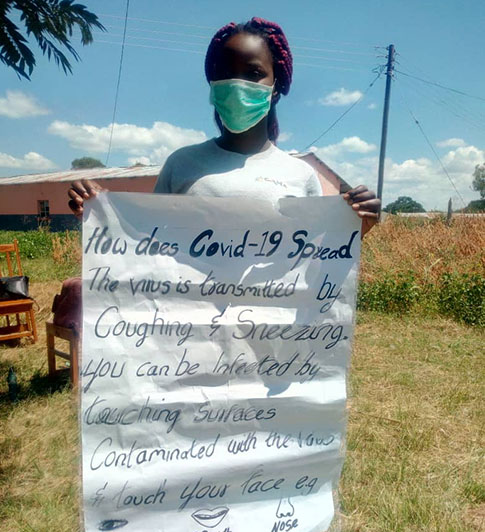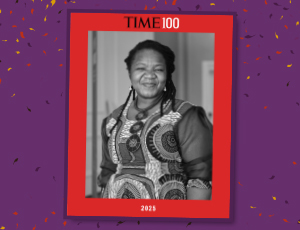As a child of rural Zimbabwe, whose education journey has led me from rural poverty to a very different life
— collaborating across continents to grow and scale the leadership of young women like me — I’ve been reflecting on what the coronavirus is doing to community.
In the UK, where my husband and I recently moved to support the operations of our respective organisations, we see communities coming together in new ways. People who used to revel in individualism are discovering the hope and beauty that comes from helping a neighbour, volunteering at food banks, and applauding health care workers and other frontline staff putting their lives at risk. In spite of the physical separation — made easier by access to technology and video apps — it feels to me like ubuntu is on the rise here.
In rural villages across Africa, we have grown up and we survive on ubuntu — that humanity towards one another, the realization that it takes a village to raise a child, and that “I am because you are.” Now, a pandemic is hitting communities that are ill equipped to cope with it — financially, medically, and socially.

Women meet to discuss community needs in 2019, long before social distancing was introduced. ‘In rural villages across Africa, we have grown up and we survive on ubuntu.’ Photo: Cynthia R Matonhodze/CAMFED
Every day I stay connected with my mum in her village. As the mother of a lawyer, she holds the status of an advocate among her peers. I am on the lookout for any information that is helpful. I interrogate everything and share what I believe is useful, because she likes sharing out information too. It’s my mission to keep her — and all of my wider circle — informed and sane through this crisis, as they adjust to their ‘new normal.’
I have heard tales from rural communities that coronavirus is a white person’s disease, or that it only affects the rich.
Worryingly though, I have heard tales from rural communities that coronavirus is a white person’s disease, or that it only affects the rich; that it was sent by God to punish those who have wronged us. Then there are the conspiracy theories that say that the West is bringing this disease to Africa on purpose; that it is transmitted by the 5G network, and that we can be infected if we sleep near our mobile phones!
And as this kind of misinformation spreads, I can’t emphasize enough the importance of educating people to question what they read, recognize myths, and seek out factual information from reputable sources. In the face of this pandemic, those who have been denied an education, who are already the most vulnerable, are also very susceptible to the untruths that are spreading across social media. (Although, as we have all experienced, believing untruths is not limited to the uneducated!)
These myths can have deadly consequences. In South Africa, some people are saying that coronavirus tests are actually being used to infect people! Others are claiming that millions of face masks being shipped to Africa are infected. I’ve even seen information shared on WhatsApp groups that you can concoct hot drinks that kill the virus. Everyone is at risk from this disease, and these myths are making the situation worse, because many people believe what they read, when it’s shared by someone they know.
To counter this, I’ve joined Facebook groups of Zimbabweans in the diaspora. I use the platform to gather verified information, such as videos from doctors explaining how people can protect themselves, and how to wash hands properly. I reach out to mum, other family groups, and to members of the CAMFED Association — women leaders in rural communities who, like me, were educated with CAMFED support — in the hope that these respected women can help spread the truth. More and more of my sisters in our network are now nurses, doctors, and healthcare workers. They’re teachers, elected officials — trusted local experts, working to identify the most vulnerable, and their knowledge is vital. Because where community, or ubuntu, has always mattered most, it feels like it is also most at risk.
I have the heartbreaking task of explaining why it is not helpful for mum and others to visit those that are sick.
Our villages are made up of extended family. When someone gets sick, word goes around, and relatives rush to visit and help out; bring food or cook. Now they’re being told to stay away. Try explaining social distancing in a context of ubuntu! How do you remain human if you don’t visit the sick, or console the bereaved in the manner we are used to?

Women would usually be first to rally round and visit those in need of support. Photo: Brandon Smith/CAMFED
Recently my mother’s sister-in-law was rushed to hospital in the city, and straight into theatre. It is so difficult when a relative gets sick, and mum sends an urgent message. I have the heartbreaking task of explaining why it is not helpful for her and others to visit.
Luckily my uncle contacted all the relatives from the hospital to say: Don’t come. Some people in Zimbabwe did not understand the importance of social distancing until 30-year-old broadcaster Zororo Makamba was the first to die of coronavirus in our country in March.
So the family found another way to support my uncle, by sending mobile money to help with the medical costs. In turn he WhatsApped us regular updates: how much he had to pay for the hospital, the ambulance, the operation…Thankfully, my auntie was soon discharged, and is now feeling well; but still no one is allowed to visit her.
Comforting family members is part of the fabric of our lives — helping the sick, but also supporting the bereaved at funerals. We call this “kubata maoko” — holding the hand of the bereaved: you cry with them, and let them cry; you get to understand what happened. Right now, with social distancing, you can’t hold those hands; you are told to stay away; even when there is a funeral, you have to limit the numbers. Yet those numbers are what console family members, instil a sense of pride, show that their relative was loved and well regarded. There’s a song we sing at funerals, Waigara zvakanaka nevamwesong, which expresses this sentiment. The lyrics say, “S/he was good company, a good person to live with.”
Now we are separated, and while I worry about her, my mum is scared for all of us here in the UK. She messages us: “Please stay in the house. Don’t go anywhere or do anything, we’re hearing terrible things.” Often, we have to record voice messages to each other and send them by WhatsApp, when the connection is too poor. I used to just send videos of the children. Now, for the first time, I am sending videos of my husband and me, trying to reassure mum that we are fine.
The only way to feel human now is to be connected by phone.

CAMFED Association members like Netsai stay connected via available technology. Photo: Jon Pilch/CAMFED
Ironically, the same technology that helps to spread the misinformation that is endangering lives is also the vehicle of spreading truth, and ubuntu, in these troubling times. The only way to feel human now is to be connected by phone.
So as we negotiate this global crisis, I beseech everyone to use this as an opportunity to spread ubuntu, not misinformation. Let’s use technology to keep us sane and connected, rather than feed our negativity bias. Each and every one of us has a role to play in tackling this virus, tackling misinformation, and keeping community at heart. It’s the only way. At CAMFED we say “Pamoja Tunaweza!” That’s Swahili for “Together we can!”
Fiona Mavhinga was one of the first young women supported in her education in Zimbabwe. She is a founding member of the CAMFED Association, the network of women leaders educated with CAMFED support, a lawyer, and Executive Adviser, CAMFED Association. Find out more about CAMFED’s COVID-19 response here.
